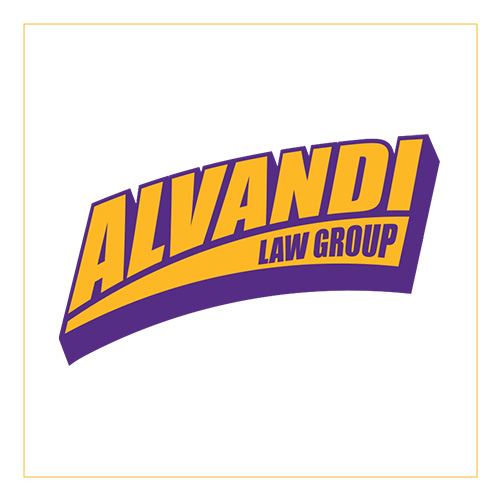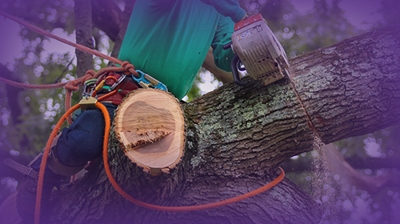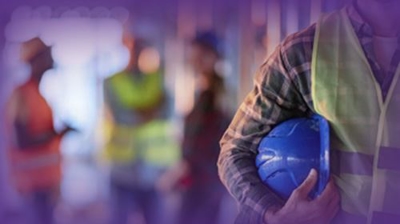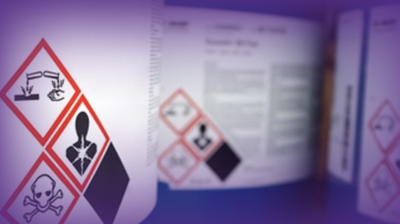
Seattle Rideshare Accident Attorneys
Holding Rideshare Drivers & Companies Accountable for Your Injuries
Rideshare services have become part of daily life for many Seattle residents and visitors. These platforms offer great convenience, but they also introduce risks that can lead to devastating accidents. The high volume of rideshare traffic in busy areas such as Downtown Seattle, Capitol Hill, and the University District creates heightened risk of crashes.
These risks don’t just result in typical car accidents. They often involve multiple parties, including drivers, corporations, and other external factors. Victims face complex challenges in seeking justice, often due to the involvement of large companies which are known to aggressively minimize liability.
Alvandi Law Group, P.C. is committed to advocating for rideshare accident victims in Seattle. With our in-depth understanding of local traffic challenges, Washington laws, and rideshare policies, we stand ready to help you pursue the compensation you deserve for medical expenses, lost income, and emotional trauma.
Rideshare accidents require knowledgeable representation. Call (800) 980-6905 or reach out to us onlineto schedule your free consultation.
Understanding Liability in Rideshare Accidents
Determining who is at fault in a rideshare accident is rarely straightforward. Liability might fall on the rideshare driver, the company, another motorist, or even a government entity.
Key Parties and Their Roles
- Drivers: Rideshare drivers may engage in negligent behaviors, such as distracted driving to respond to app notifications or rushing to meet tight schedules. An example of fault would include a driver running a red light while focusing on app directions and striking another vehicle.
- Rideshare Companies: Uber and Lyft often argue that they only act as technology platforms, limiting their exposure to liability. However, companies can be held responsible in certain cases. For instance, when app navigation contributed to unsafe driving behavior.
The Independent Contractor Shield
Rideshare companies classify their drivers as independent contractors, which usually exempts them from being vicariously liable for a driver's actions. While this is a legal hurdle, pressing companies to adhere to safety obligations like providing insurance coverage can still yield compensation for victims. Additionally, if a rideshare company fails in its duties, such as conducting proper background checks or ensuring vehicle safety, it may still be held accountable in certain cases.
Rideshare Insurance Coverage: What You Need to Know
Rideshare accidents involve a unique tiered insurance structure. The relevant coverage depends on the driver’s status at the time of the crash. Here’s a closer look:
Coverage Phases
- App Off: If the driver is not logged into the rideshare app, their personal insurance is generally the only coverage available. However, most personal policies exclude coverage if the car is being used for commercial purposes.
- Period 1 (App On, No Passenger Request): Limited coverage provided by Uber/Lyft applies at this stage. Typical limits are:
- $50,000 per person for bodily injury.
- $100,000 per accident for bodily injury.
- $25,000 for property damage.
- Periods 2 & 3 (En Route to Pick Up or During a Ride): The driver is actively transporting or en route to transport a passenger. During these phases, the company typically provides up to $1 million in liability coverage.
Challenges in Obtaining Compensation
Rideshare companies often dispute claims to minimize payouts. Common challenges include:
- Denying that the driver was logged into the app at the time of the accident.
- Arguing that the accident occurred during the driver’s personal time.
- Placing blame on third parties to offset responsibility.
Navigating these disputes requires careful collection of evidence, such as app data and timestamped trip records.
Steps to Take Immediately After a Rideshare Accident
Taking the right steps after a rideshare crash can protect your health and strengthen your claim. Here’s an expanded guide to follow:
- Seek Immediate Medical Attention -Even if injuries seem minor, get checked out by a medical professional. Some injuries like whiplash may not present symptoms immediately but can worsen over time. Retain all medical records and bills, as they are crucial evidence.
- Document the Scene - Capture wide-angle photos of the accident site, focusing on damaged vehicles, skid marks, and traffic signals. Record audio or video of witness statements and secure their contact information.
- Preserve App Data - Take screenshots of the trip information in the rideshare app, such as driver details, timestamps, and payment records.
- Contact Authorities - File a police report detailing all relevant facts. This document can be essential when negotiating a claim later.
- Deal Cautiously with Insurance Adjusters - Avoid signing any agreements or making recorded statements until consulting an attorney. Insurance companies may use your words to minimize payouts.
The Impact of Uber and Lyft on Seattle Roads
Uber and Lyft are integral parts of Seattle’s transportation system. Their convenience, especially in areas underserved by traditional transit, has entrenched them as a primary travel choice. For comparison, Seattle taxicabs saw their peak usage in 2012, completing slightly over 5.2 million trips yearly. Today, Uber and Lyft are on track to handle more than 31 million trips annually.
However, this growing dependency on app-based transportation services has brought new challenges to the city’s already congested streets. Up to a third of rideshare drivers have been involved in a crash, according to a study from the University of Illinois Chicago.
Common Causes of Rideshare Accidents in Seattle
Rideshare accidents in Seattle stem from several distinct factors, many linked to the unique dynamics of urban ridesharing:
- Distracted Driving: Drivers must toggle their attention between navigation apps, rideshare platforms, and the road.
- Fatigue: Many rideshare drivers work irregular hours, with some extending their workdays to provide services during peak demand times late at night or early in the morning.
- Unfamiliarity with Routes: Seattle’s complex layout includes unpredictable traffic patterns and challenging road networks, like the multi-lane chaos of Interstate 5 and other busy corridors such as Aurora Avenue.
- Seattle’s Traffic Problem: Drivers in Seattle lose 138 hours annually to traffic. Ride-hailing services exacerbate road density, especially downtown and congested areas like South Lake Union.
- Unsafe Driving Practices: The expectation to quickly pick up or drop off passengers often leads drivers to stop in hazardous zones, creating an uneven flow of traffic.
- Weather Conditions: Seattle’s rainy climate contributes to slick roads and decreased visibility, elevating crash risks.
A better understanding of these causes not only strengthens claims but also helps advocate for policy changes to reduce future risks.
How Washington State Laws Impact Rideshare Accident Claims
Understanding the framework of Washington’s laws can significantly impact the outcome of a rideshare claim.
Comparative Negligence
Washington State follows a comparative negligence rule, allowing claimants to recover damages even if they share some responsibility for an accident. The compensation is reduced based on the percentage of fault assigned to the claimant. For instance, if your total damages amount to $100,000 and you are found to be 20% at fault, your recoverable compensation would be reduced to $80,000.
Statutory Limitations
Victims of personal injury accidents are required to file their claims within 3 years from the date of the incident, as per statutory limitations. This deadline is crucial, as failing to file within this time frame can result in losing the right to pursue any compensation for your injuries or damages.
Types of Compensation in Rideshare Accidents
Victims of rideshare accidents may be eligible to claim various types of compensation to address their losses. These typically fall into two main categories:
- Economic Damages. These cover tangible, measurable financial losses resulting from the accident. Examples include medical expenses like hospital bills, ongoing therapy, or medications. Victims can also recover lost income if the injuries prevent them from working, as well as the cost of repairing or replacing damaged property.
- Non-Economic Damages. These address intangible losses that are harder to calculate but no less significant. Victims may seek compensation for pain and suffering endured from the injuries, emotional distress caused by the trauma of the accident, or even a loss of enjoyment in daily life due to lasting physical or emotional impacts.
The Role of Technology in Rideshare Accident Cases
In rideshare accident claims, having solid evidence is essential to building a strong case, and technology plays a crucial role in providing that proof. The digital tools and data associated with rideshare services can clarify what happened during an accident and who is to blame.
- GPS Data: GPS tracking records the driver's speed, location, and route at the time of the accident. This information can help determine if the driver was speeding, driving recklessly, or following traffic rules prior to the crash.
- Dashcam Footage: Dashcams are invaluable in accident cases, offering a real-time visual account of the collision. This footage can clear up disputes about fault, show the behavior of other drivers, or reveal unexpected hazards that led to the crash.
- App Logs: Rideshare apps log critical details, such as whether the driver was active on the platform, picking up a passenger, or completing a trip. This is important in understanding the type of insurance coverage in effect at the time of the accident and determining liability.
By leveraging these technologies, both accident victims and their legal teams can build a stronger case. They help verify claims, reinforce credible accounts, and expose inconsistencies in opposing parties' arguments.
Injured in a rideshare accident? Call (800) 980-6905 or contact us online to schedule a free consultation. We’re available 24/7 to assist you.

See Our Success Stories
-
 $5,400,000 Tree Trimming Accident
$5,400,000 Tree Trimming AccidentSecured $5,400,000 for a client injured following a tree trimming accident.
-
 $4,400,000 Construction Site Accident
$4,400,000 Construction Site AccidentAchieved $4,400,000 for a client harmed in a construction site incident.
-
 $1,500,000 Construction Site Accident
$1,500,000 Construction Site AccidentWon $1,500,000 for a client involved in a worksite accident.
-
 $850,000 Roofing Injury
$850,000 Roofing InjuryObtained $850,000 for a client involved in a roofing injury case.
-
 $700,000 Office Work Injury
$700,000 Office Work InjuryObtained $700,000 compensation for a client who suffered an office-related injury.
-
 $700,000 Chemical Exposure
$700,000 Chemical Exposure
Why You Need a Lawyer for Seattle Rideshare Accident Claims
Rideshare companies have vast resources at their disposal and often deploy aggressive tactics to reduce liability. Pursuing your claim without skilled legal representation places you at a disadvantage.
The Advantages of Having Us on Your Side
- Success Rate Over 95% - Our firm has a proven track record of winning cases, with over 95% of claims resolved successfully in favor of our clients.
- Over a Billion Dollars in Settlements - We’ve secured more than a billion dollars for injury victims, ensuring they receive the financial compensation they deserve.
- Extensive Experience - With over 20 years of service and more than 10,000 cases handled, our team has the knowledge and expertise to guide you through even the most complex legal situations.
- Membership in Prestigious Forums - Our attorneys are proud members of the Million Dollar Advocates Forum® and the Multi-Million Dollar Advocates Forum®, highlighting our ability to achieve significant results.
- 100% Dedicated to the Injured - We focus solely on advocating for injury victims, fighting tirelessly to protect your rights and secure justice on your behalf.
- Bilingual Representation - Our team speaks English and Spanish, ensuring accessibility for clients from diverse backgrounds.
- 24/7 Availability - We’re here whenever you need us, ready to provide support and guidance at any time of day or night.
- Contingency Fee Structure - We only collect fees if we win your case, so financial worries don't stand in the way of seeking justice.
- Free Consultations - Get a no-cost consultation to discuss your case with an experienced rideshare attorney who can explain your options.







